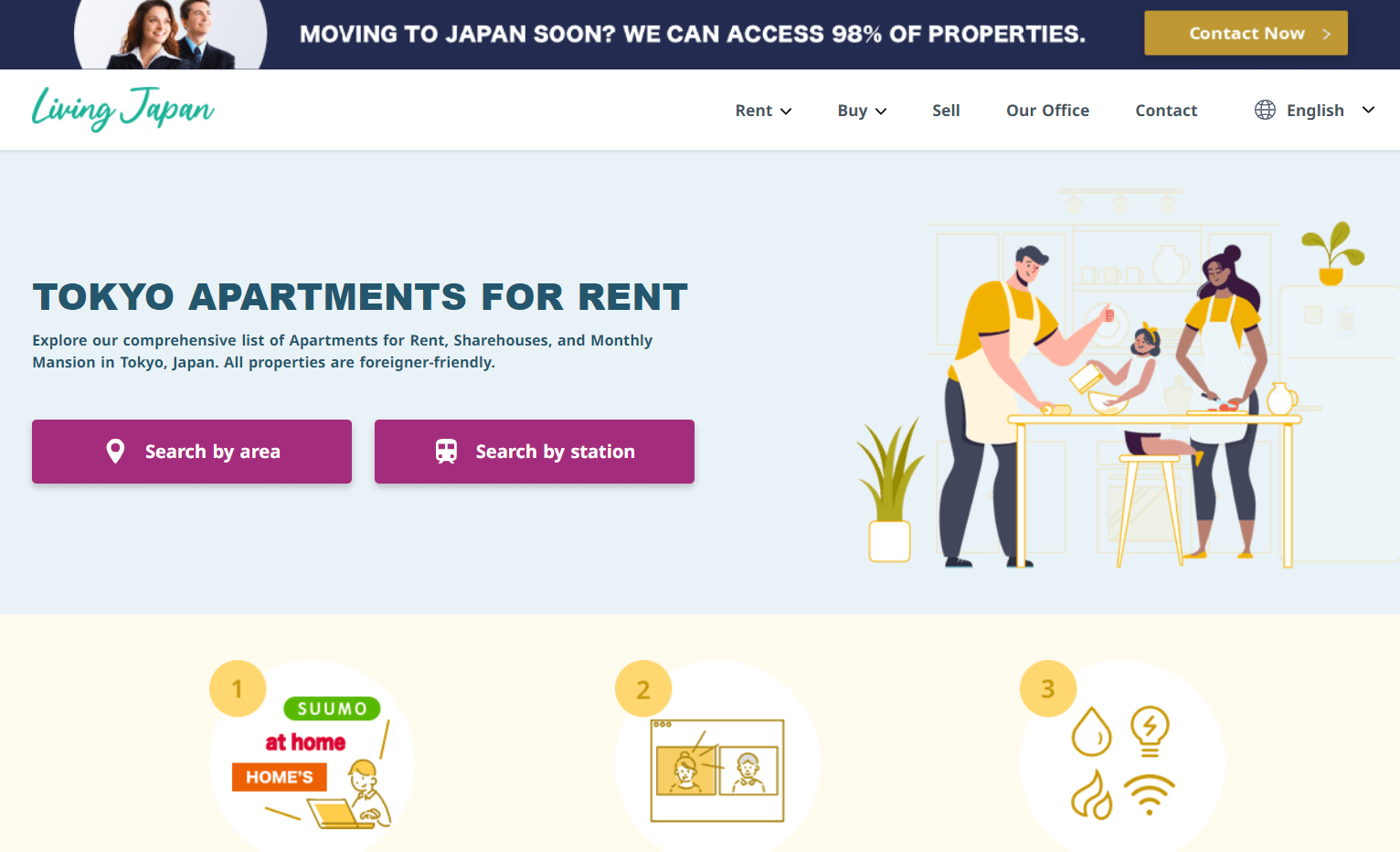How to Buy Real Estate in Japan
Learn how to purchase real estate property in Japan

Are you interested in buying real estate in Japan?
People buying and selling real estate in Japan are increasing in numbers in recent years. Experts say that although Japanese real estate did get altered, like many other countries, because of the current global crisis climate due to COVID, it is still a highly liquid market with plenty of opportunities for those who are seeking a good investment.
In this article let me share with you some of the important points when it comes to buying real estate in Japan.
We also want to let you know that there’s a webinar taking place on Thursday, September 15, 2022, for those who are interested in purchasing real estate in Japan. Either if you’re already looking for information or even if you’re not decided but are interested in this idea, please make sure to check the details of this webinar from the link below.
▶ Webinar: How to Buy Real Estate in Japan?
*Please note that this article contains affiliate links.
Buying and selling of real estate in Japan
As I previously mentioned, people buying and selling real estate in Japan is increasing in numbers. You might be wondering how this can be an opportunity for you as a foreigner living in Japan (or planning to live in Japan).
Well, there are several reasons why you would be interested. First, you should know that there are no special restrictions on foreign ownership nor extra taxes on foreigners (regardless of their visa status), which evens the playing field.
Also, it is good to know that there are many rules and regulations put into place to prevent any kind of problems during a real estate transaction. Not to mention, it is also required that a qualified “Real Estate Transaction Specialist” is present during the contracting procedures.
Acquisition costs
The costs that come when purchasing real estate in Japan are basically divided into “Property price” and “Transaction costs”.
“What is included in the transaction costs?” you might ask. This includes; registration fee, loan fee, agent fee, insurance cost, and taxes, among others. This transaction cost is usually between 4 to 5 % of the property price. Or 1 to2 % without brokerage fee.
Another important thing here is Home Mortgage Loans. These are popular in Japan, especially because interest rates in Japan are relatively low (1.2 to 2.0% in the case of fixed-rate loans). In order to obtain a loan in Japan, there are some prerequisites that need to be met such as your age, years of employment in Japan, and yearly income, among others.
The buying process
Although very simplified, the following is the process when buying real estate in Japan.
1. Search for real estate properties: You can contact a real estate agent or you can use a website.
2. Visit the property: Once you have found a real estate property that you like, schedule to visit the property to make sure it is what you’re looking for.
3. submit the purchase application form: After visiting the place and you feel sure about wanting to proceed, the next step is to apply for the property. You need to fill in your offer price, payment method, the contract date, etc.
4. Sign the contract: After you and the seller have agreed to all the terms, it is time to sit down and check all the details of the contract as well as the “Explanation of Important Matters” which is another document required here. If everything is good, you can sign the contract.
5. Housing loan application: In the case that you want to apply for a housing loan, this would be more or less the timing to do so.
6. Final check: You and the seller will go to the property to do a final check to be sure that everything is as indicated in the property report.
7. Closing and transfer: This includes ownership transfer application, payment of the remaining costs, and settlement of fixed asset tax, among other remaining details.
Required documents
The required documentation when purchasing real estate in Japan can differ depending on whether you’re a resident in Japan or not.
In the case that you are a resident, the required documents will include the certificate of residence, residence card, seal, the certificate of seal impression, and Identification documents.
On the other hand, if you’re not a resident of Japan, you will need an affidavit and your identification documents.
Join our Webinar: How to Buy Real Estate in Japan?
If you are interested in purchasing real estate in Japan and want to know more about the details on how to do this, there is a webinar that will take place at 5pm (JST) on September 15, 2022.
This webinar will cover all that you need to know: from explaining the unique characteristics that Japan has when it comes to real estate and analysis of areas of interest as well as price trends, to details about the purchasing process and the costs that need to be considered
Be sure to check the details for this webinar in the link below.
▶ Webinar: How to Buy Real Estate in Japan?

Living Japan offers useful services to make the purchase/renting experience as comfortable for you as possible.
You can inquire about properties listed on other real estate websites such as SUUMO and HOME’S. You can get everything done online (from room searching, room tours, and even contract procedures). Living Japan also offers to help you to set up utilities such as electricity, gas, and water.
Their website is available in English, Chinese, and Korean.
▶Official Website: https://www.livingjapan.com/
If you want to know more about renting an apartment in Japan, go check the following articles for more info!
Written by
Born and raised in Costa Rica, I started living in Tokyo from college. I love traveling within Japan & around the world. Since I wasn’t born in Japan, I know the cultural impact that you can get when visiting Japan for the first time and what you might be worried about before your trip. And I’ve lived long enough to somewhat understand the nuances of the Japanese culture that make this country such an attractive place to visit. Hopefully I can provide to you both the information you’re looking for and the information you didn’t know you needed to know.












